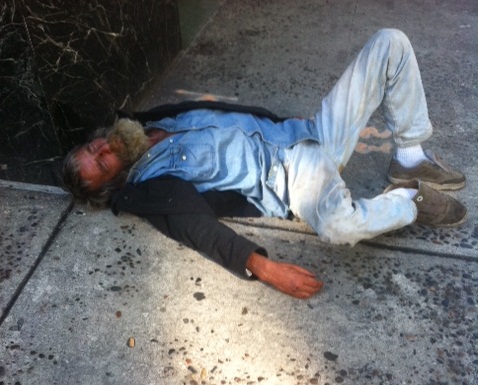
When I was a new minister, I had an encounter I'll never forget. I called on a well-to-do couple, the man then serving on the church board. My purpose was to ask them to increase their yearly pledge, which was embarrassingly low -- miniscule, even. After all, church leaders need to lead, I reasoned, and the church budget was hurting. After the requisite niceties, I brought up the matter of their gift. But I didn't get far before the wife spat out, "We're not increasing our pledge! We worked for our money, and we're spending it on ourselves." I was dumbfounded. I left with scarcely another word.
But this is precisely the attitude that seems to have taken a firm hold in the Republican Party: "I have mine, I deserve it, and the rest of you -- well, you're on your own." In the recent budget battle President Obama was able to get a small increase in taxes just for the wealthiest 1 percent -- those making more than $450,000 a year. Where did we ever get the idea, post-Ayn Rand, post-Horatio Alger, that we deserve what we have, because of our -- what? Virtue? Hard work? How did we lose our understanding that all of us, rich and poor and in between, are radically interdependent?
I think of my parents, neither of whom finished high school. I grew up with my father in N. Louisiana, where he worked as a roughneck in the oil field. His particular job was "stabbing pipe," which required him to climb to the top of the oil rig in all kinds of weather -- rain, sleet, cold -- in order to guide pipe into the ground. Many men were injured and some killed in the oil field. My father was lucky -- he lost only a finger, not his life. He worked for some of the biggest oil companies in the world. But we did not have health insurance, and we never had a paid vacation. Or any vacation, for that matter.
My mother was a professional dancer in her youth, but then the Depression came. And marriage and divorce. She lived in Cincinnati and earned her living cleaning the homes of wealthy people. No social security, no health care, no paid vacations. With this kind of work, you get paid when you show up. When you can no longer show up, you don't get paid. She ended her days cooking and cleaning for a group of priests, who gave her love and respect and the kind treatment she deserved.
As I write, I'm looking out the window of my cozy condo, and I see a worker in yellow rain slickers -- he is hosing off the deck of the building next door. I shiver as I watch. It's a bitter day. Oil field roustabouts, house cleaners, garbage collectors, busboys, street sweepers, slaughter house workers, window washers, fruit pickers, childcare workers and caregivers for the old and the sick -- because they work, we live.
There's a worm at the moral core of our country. It's called "individualism," or "self-sufficiency, or "independence," and it masquerades as a positive attribute. Those who believe they deserve their bounty, while others are undeserving, are simply out of touch. They are out of touch with their inherent connectedness, their own need for the many who serve and give, but get little monetary reward. They are out of touch with their humanity.
As a retired minister, I am not wealthy, but I pastored a large church and earned more than I needed. My job is to find the best ways to give away what I do not need, and to need less rather than more. It's a challenge, I must admit -- I live all too well. But as for taxes? I would be so willing to pay more in taxes, if I thought my taxes would bring food to the hungry, a home to the homeless, health care to people who lack it, and a college education to people who want to learn.
The budget battle -- and it will continue -- is not just a political battle; it is a moral battle. It's all about our character, our ethics, our sense of gratitude. In other words, it's about religion, and as such it is an issue that should be raised regularly in every house of worship in our country -- but it is generally not raised. And why? It's a touchy subject. We wouldn't want to offend anyone, now would we. Like Jesus did.
Marilyn is the subject of a documentary film, "Raw Faith," now available on Netflix.
